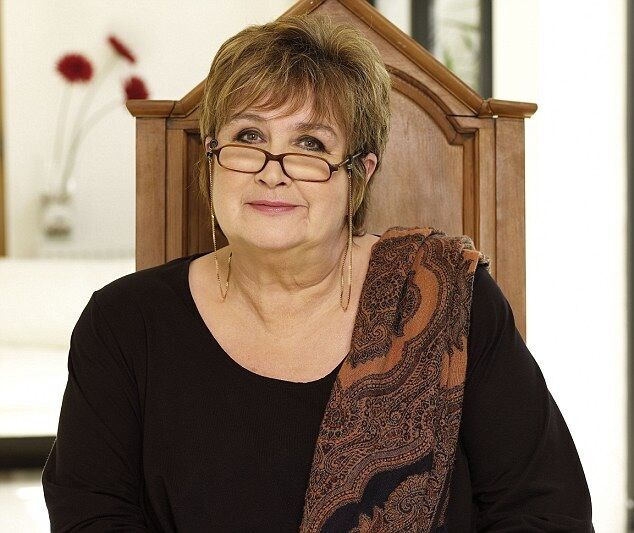This year feels like the perfect time to welcome the launch of Jenni Murray’s new book – A History of the World in 21 Women – as we celebrate the centenary of women (those aged over 30 who had a household) gaining the vote and the rise of global feminist movements such as #TimesUp and #MeToo.
Murray, presenter of Radio 4’s Woman’s Hour since 1987, author and feminist, chatted to journalist Alex Clark at the Manchester Literature Festival about her recently released sixth book which focuses on women of all ages, countries and walks of life. She praises females who stood up, spoke out, broke moulds and fought for change.
These 21 pioneering women range from political heavyweights (Angela Merkel, Benazir Bhutto and Hillary Clinton) to artists and writers (Toni Morrison, Margaret Atwood and Frida Kahlo) and historical figures (Catherine the Great and Hatshepsut).
It’s clear from Murray’s discussion with Clark that she wants to celebrate the lives, struggles and achievements of icons who have helped shaped the world for women today. She begins by explaining how she wanted to start as far back as possible and examine role models who should be cheered, emulated and remembered, going on to talk about Hatshepsut, the longest reigning female pharaoh in Egypt, whom she discovered in 1988 after working on a Woman’s Hour programme. Hatshepsut was revolutionary because she was a female pharaoh; she convinced the Egyptians that she was a man, grew a beard, wore a little hat and enjoyed a peaceful and prosperous reign.
 Murray clearly relishes running through her curated inspirational dames, and talks about the women who made an impact in the artistic world. A huge Frida Kahlo fan (she named one of her dogs after the artist), she says: “Frida was a real feminist and used her own experience of pain – after a tragic bus accident caused metal to damage her abdomen – to fuel her work. Her longing to have a child, after many miscarriages, is often represented by monkeys or dogs in her paintings.”
Murray clearly relishes running through her curated inspirational dames, and talks about the women who made an impact in the artistic world. A huge Frida Kahlo fan (she named one of her dogs after the artist), she says: “Frida was a real feminist and used her own experience of pain – after a tragic bus accident caused metal to damage her abdomen – to fuel her work. Her longing to have a child, after many miscarriages, is often represented by monkeys or dogs in her paintings.”
Another key theme of Murray’s book is how fathers and brothers have helped women. She employs the example of Artemesia Gentileschi, the Baroque painter, whose father taught her to paint in the style of Caravaggio. Gentileschi’s life was blighted with tragedy after her father’s friend, Agostino Tassi, raped her and, not surprisingly, her work changed after the assault. Murray notes how this incident is paralleled in modern day America, pointing to the recent Brett Kavanaugh and Christine Blasey Ford episode. “This case is a real turning point. The rise of #TimesUp and #MeToo has spread around the world and I believe they’ll be a revolution in America following this lawsuit.”
Her talk then moves onto women in politics. Murray is full of praise and encouragement for women in power. “I wish Hilary Clinton had shown more warmth during her campaign, then she would have won. Although I know it’s tough for women to pitch themselves in this arena.” There are similarities with how a 21-year-old Monica Lewinsky was hung out to dry by the press.
 Murray says: “When I interviewed Hillary she acknowledged this affair and I asked her why she’d stayed with Bill Clinton. She said it was because they’d met at university and had started a conversation, and throughout their marriage they’re still having that conversation. She said a real marriage is a ‘marriage of minds, intellect and thinking.’ She then coined the phrase a ‘woman’s rights are human rights’. “
Murray says: “When I interviewed Hillary she acknowledged this affair and I asked her why she’d stayed with Bill Clinton. She said it was because they’d met at university and had started a conversation, and throughout their marriage they’re still having that conversation. She said a real marriage is a ‘marriage of minds, intellect and thinking.’ She then coined the phrase a ‘woman’s rights are human rights’. “
Asked, of all the women she’d like to interview, Murray replies: “Angela Merkel. She’s ruthless and because of this the press haven’t sexualised her in any way. I read once that the Stasi had asked her to spy on her colleagues in East Germany and she’d point blank refused. This is a tough woman and a real chancellor.”
The talk draws to a close with Clark asking Murray who was missing from her top 21 women. “Without question Maya Angelou, the American poet, singer, memoirist, and civil rights activist. I wish I’d been about to include her but I ran out of space.”
A History of the World in 21 Women is available as a hardback for £16.99 from Oneworld











